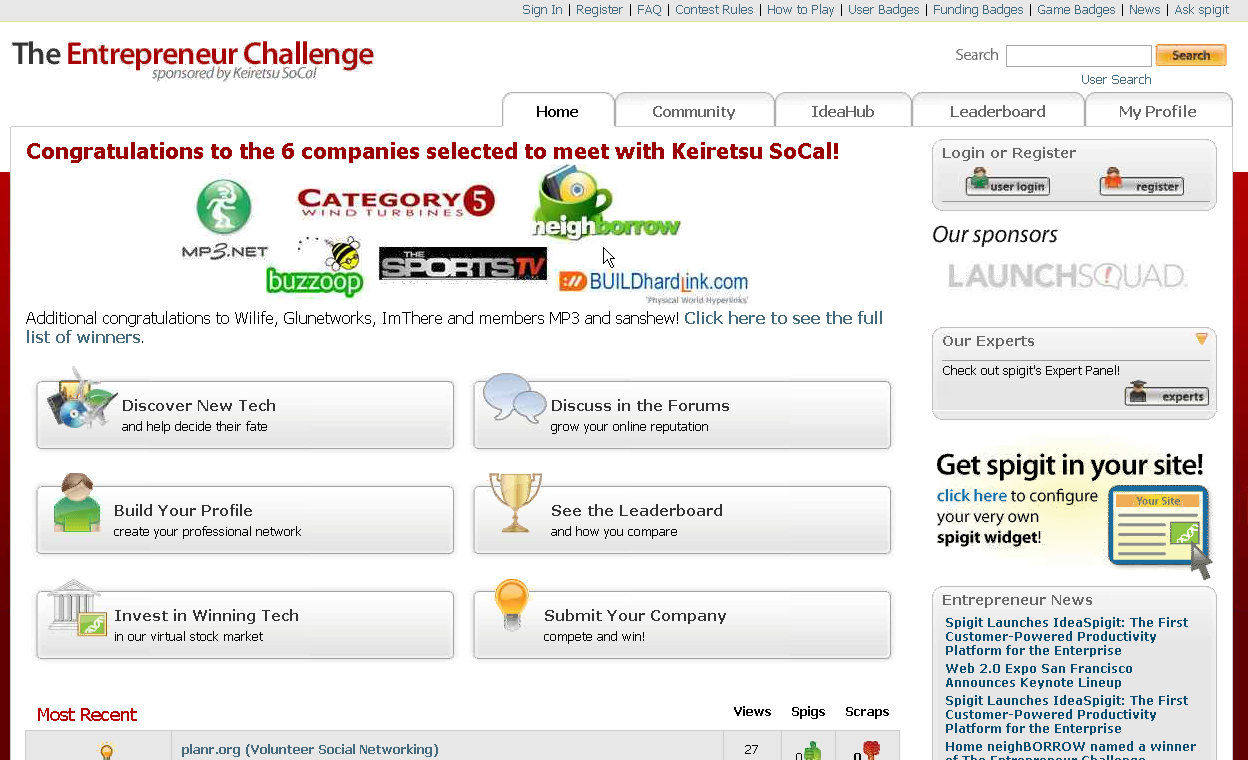Spigit mashes up social software to reveal innovation

Take the idea of community, sprinkle liberally with process, add a dash of prediction market thinking and a soupcon of reputation analysis, stir gently without too much mashing and you have InnovationSpigit.
I really like this idea because it solves one of the main problems facing large organizations attempting to figure which are the best ideas to take forward. How do you find the best ideas and the people behind them? Spigit describes its solution as a 'social productivity platform' but in reality, it has more affinity to prediction markets and game theory modeling.
The idea behind prediction markets is not new - Google has been using it for years - but systemetizing it in a way that engages people and yet allows for a high degree of success has been somewhat elusive.
In a recent McKinsey round table (registratoin required) that included Bo Cowgill, a product manager at Google, Todd Henderson, an assistant professor at the University of Chicago Law School, Jeff Severts vice president and general manager of Geek Squad and James Surowiecki, author of Wisdom of Crowds, the consensus was that used with care, prediction markets can yield valuable results. Whether you are skeptical or otherwise, there's no doubting that Spigit has thought through the various issues.
Several features make InnovationSpigit stand out. There is a built in reward system that can be used to hand over real world value. The idea is that rewards encourage greater participation and serve to overcome the 90:9:1 Nielsen rule of participation inequality that bedevils so many social software projects.
Ideas can fall into one of several category buckets so people can see how an idea is progressing or not, providing a Darwinian feel to the service as ideas are played out.
The role of experts in these communities is somewhat murky but InnovationSpigit believes there is a genuine necessity to engage experts early into the game. This is a matter of individual choice but ratings that help identify experts can be used to build reputation as a genuinely accountable and visible part of the innovation process, rather than simply relying on Digg like popularity.
InnovationSpigit can be used across entire business communities and in order to ensure an appropriate level of security, Spigit includes LDAP authentication.
Recently, the company augmented InnovationSpigit with IdeaSpigit, a lighter weight version of InnovationSpigit that allows companies to gather and track community feedback.
Although the company would not name customers, it says eight Fortune 500 customers are either in production or evaluating the product which is offered in both hosted and fully 'behind the firewall' versions.
